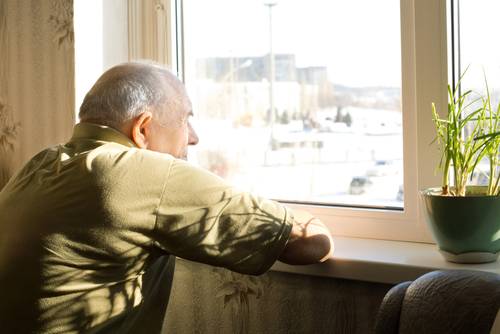Surviving Emotional Rollercoasters

Last week was Rollercoaster Day which celebrates the first vertical loop rollercoaster on 16th August 1898. This brought back great memories of days spent with family when young. We enjoyed the apprehension as we queued up, followed by the exhilaration and sometimes sheer terror of rollercoaster rides.
With my Hypnotherapist’s hat on I also begin to think about the emotional rollercoasters that we all face.
This year, for example, we’ve undergone the joy and disappointment of the Euros and the Olympics and the gripping ups and downs of our favourite tv thrillers. On a more serious note, however, we’ve enjoyed the excitement of Covid restrictions being lifted yet the fears that it’s still a danger. We’ve experienced the joyful family celebrations of some and the heart-breaking sadness of those who have recently lost family and friends.
Causes and effects
These rollercoaster rides can result in exhaustion or a sense of losing control. We might feel that this rollercoaster ride will never end, and we’ll never recover. They can cause us to behave irrationally or let fly and upset others. They make us feel on edge or angry.
The emotional rollercoaster can be brought on by many things. They include everyday problems and stresses, depression or extreme tiredness, chronic illness or pain and hormonal changes.
For strategies to cope with emotional rollercoasters READ MORE
Social Anxiety
 With Coronavirus restrictions about to ease, many of us are excited about getting back to some kind of normality and having the freedom to mix and socialise again. For those of us who suffer with social anxiety, however, that fact can produce a heightened state of panic.
With Coronavirus restrictions about to ease, many of us are excited about getting back to some kind of normality and having the freedom to mix and socialise again. For those of us who suffer with social anxiety, however, that fact can produce a heightened state of panic.
Which social situation do you relate to?
We can all relate to social anxiety in some way. For example maybe you’ve felt nervous about meeting someone new or felt a bit uncomfortable when walking into a room full of strangers. Perhaps you are currently worried about how you look after months of over-eating. Maybe you wonder whether you’ve accomplished enough during lockdown. Perhaps you wonder whether your friends will want to meet up again. All of these musings can lead to negative thinking patterns which, in turn, can lead to more anxiety.
Stuck in your comfort zone?
If you suffer social anxiety you may have found being in lockdown has meant you can stay in your comfort zone and avoid facing up to your anxiety. It may have been a kind of relief. Now that restrictions will soon be lifted, you will have to leave that comfort zone again. As a result, you may be experiencing an increase in anxiety or you may even be experiencing anxiety for the first time. Perhaps your confidence has taken a knock in lockdown?
Do you find that when faced with a social situation you get worried immediately before the event? Perhaps you spend weeks worrying about it or maybe you spend time endlessly analysing how you acted when there?
Access the free audio recording :
Hints and tips
Here are some ways to lessen feelings of social anxiety:
- Be aware of the ‘worry story’ you are telling yourself and try to distance yourself from it.
- Acknowledge and then dump negative thoughts and replace them with positive ones. Thoughts are just thoughts … you can choose whether to pay attention to them or move on to other more positive thoughts.
- Write down the good things, things that you are grateful for and things you are looking forward to. Writing it down allows you to focus better on the more positive ideas.
- Do something that makes you feel good for at least an hour every day.
- Plan a daily scheduled ‘worry window’ – a regular time slot that you can set aside to manage any negative thoughts and feelings and if you find yourself thinking negative thoughts at other times tell yourself you’ll deal with them during your worry window.
- Start out small, having more small talk with people you come across as lockdown eases.
- Remember that not everyone is judging you – people are usually too busy thinking about themselves! Focus instead on making the people around you feel comfortable.
- Listen to the free audio recording. Just having 15 minutes or so out of your day to focus on yourself, instead of listening to news updates, can help you regain a sense of balance and calm. It can also help start to break any habits you may have formed during lockdown.
It’s natural to worry, of course, and we all do to some extent. That’s how our mind works through current or potential problems. We are wired to look for potential danger for survival. When we become stuck in a pattern of negative thinking, however, that survival instinct stops being useful and leads to anxiety. A more helpful strategy is to focus on the things we can control and choose a way to respond to them.
Injection Phobia

The great news that a vaccine is on its way to help us in the fight against COVID-19 can, for some people, be extremely challenging. Some want to have the vaccine but the idea of having an injection strikes fear into their hearts. An injection phobia, or Trypanophobia to give it its correct title, can affect between 3.5-10% of the population. See Anxiety UK for further info. According to a recent study in the Journal of Advanced Nursing (McLenon and Rogers, 2019) 16% of adult patients avoid the flu jab through fear of needles.
How do phobias start?
There are numerous reasons for a phobia forming: it can be a result of a childhood experience of an injection or having been told to stay away from needles as they are dangerous. It could be a learned fear that we have picked up from someone else with an injection phobia or could be related to some trauma we’ve experienced or witnessed concerning needles.
How can Hypnotherapy help with an injection phobia?
Hypnotherapy can be a very effective treatment for phobias. It helps to re-programme the fear response, to re-process any difficult memories and induce a deep state of relaxation. This allows you to hypnotically rehearse many situations of feeling comfortable and at ease with having an injection. As well as hypnosis, I combine other effective treatments to deal with the emotions around the memories and fears.
Hints and tips when going for a jab
Should you have an appointment for a jab before you get to see your hypnotherapist here are some useful hints and tips:
- Remember this fear is quite common and there is no need to feel embarrassed. Mention to whoever is administering the injection that you have a fear, and they will help to put you at ease. They may be able to answer any questions you may have. Staff would prefer to know that you are worried so that they can help you feel more comfortable.
- If you tend to faint or fear that you might, then ask them to let you lie down to have the jab.
- Practising a behavioural technique called Applied Tension can also help in these circumstances as it helps to stop fainting by temporarily increasing blood pressure:
Sit in a comfortable place and tense the muscles in your arms, upper body, and legs. Hold the tension for 10-15 seconds until you start to feel a warmth rising in your face. Release the tension and let your body return to a normal state (neither tense nor completely relaxed). After 20-30 seconds repeat the process. Practice the whole process five times. Do this at least three times a day for a week prior to receiving the jab. Avoid tensing the muscles during the injection itself. Do not tense any part of your body where you have any medical problems.
- Practice deep breathing:
Breathe in so that your tummy (not your chest) rises (like a balloon filling with air). You will know when you are doing this correctly by placing your hands on your tummy with your fingertips touching on an out-breath. If you breathe in correctly, the fingertips should part. Breathe in through your nose, hold your breath for 3 seconds and then breathe out through your nose. Breathe out for longer than you breathe in.
- Distract yourself. Use distraction techniques to focus on something else. Examples include:
Visualisation – see yourself being in your favourite place/favourite holiday destination. Close your eyes and use all your senses to imagine it as if you are there. Notice what it looks like, sounds like, and feels like to be there.
Listen to music – perhaps bring some headphones with your favourite music.
Read a book or play a game on your phone
- Smile!
If you find an injection painful then a recent study (Pressman, et. al., 2020) showed that when smiling (a smile big and wide enough to lift the corners of your mouth, raise your cheeks and cause your eyes to crease) or grimacing was used during the procedure needle pain was reduced by 40%.
Coping with the Current Virus Chaos – Virtual Holidays
Helping you beat the holiday blues
As the government warns Britons against making holiday plans just yet,  many people may find their state of mind slipping downwards. They are missing having their annual summer trip to look forward to.
many people may find their state of mind slipping downwards. They are missing having their annual summer trip to look forward to.
Amid the despair and grief of this pandemic, it might seem silly to focus on holidays, but they undoubtedly play a huge part in our mental health and wellbeing.
So, in response, I’m going to help people to travel to their favourite destination. From the comfort of your own armchair you can escape in your mind with 5 free holiday recordings!
Which holiday will you choose? You have a choice of five: a beach resort, mountain trip, safari, American road trip or family Disney destination. Why not sit back, relax and let your mind whisk you off to another world.
Coping with the Current Virus Chaos – Business Mindset
 Relight Your Entrepreneurial Fire with the Power of Hypnosis
Relight Your Entrepreneurial Fire with the Power of Hypnosis
The current pandemic has undoubtedly changed businesses and the economy. Many companies are now having to adapt to the new realities and deliver their services in completely new ways.
As a result, all businesses are having to re-evaluate and find innovative ways to survive. They are looking to come out in a stronger position in the market place.
More than ever we need the right focused business mindset to find a way through the current challenges.
To listen to my free recording to help you get that focused business mindset back and for 6 strategies to re-ignite your entrepreneurial fire click here
Coping with the Current Virus Chaos – Relationships
How Hypnotherapy works for Improving Relationships
Hypnotherapy works on improving relationships by changing patterns of thought, behaviour and results.

Relationship hypnosis treatment deals with your relationship with your partner.
Hypnosis for relationships can help you:
- Deal with negative thoughts and feelings
- Improve communication with those around you
- Get back feelings of love and romance
- Create solid relationships for a happier future
You CAN get your relationship back on track.
For advice on how to do that and to access my COMPLIMENTARY (no strings attached) Hypnosis Recording click here: Relationship help
Coping with the Current Virus Chaos – Sleep
Sleep Soundly with Hypnosis

One of the main impacts of the current pandemic is that for many of us it is disrupting our sleep. When we are stressed or things have changed dramatically for us it can, therefore, make sleep more difficult.
Many are finding they are having trouble sleeping when it has never been an issue before, others are finding it’s exacerbating existing problems. It is different for each person. Perhaps you are experiencing some of the following:
Staying awake longer than usual
Waking up several times during the night
Not being able to get back to sleep once awakened
Having more vivid or emotional dreams
Feeling exhausted, frustrated or short-tempered in the morning
Having trouble performing or focusing
If you use good sleep hygiene methods you will certainly get a sleep better.
Many sleep issues can be helped with Hypnosis.
If you are having problems with sleep and other treatments are not working, then hypnosis may be able to help you sleep well again. Hypnotherapy uses different methods to help with relaxation and is a perfectly natural treatment. Moreover, there are no side effects, unlike sleep medication, therefore, it can be very useful for those who prefer not to take sleeping pills.
Hypnosis can bring relief to the endless tossing and turning in bed – lessening the worry, stress and anxiety that sleeplessness brings – and return the deep, soothing and healthy sleep that we all require.
For some great hints and tips for getting a good night’s sleep plus details on how to get a FREE hypnosis download to get you on the road to sleeping well click here Sleep Soundly
Coping with The Current Virus Chaos – Anxiety
How To Manage Uncertainty in Uncertain Times

Things have changed incredibly for us all with this current pandemic. All the uncertainty can be difficult to cope with.
You may feel anxious or stressed right now and therefore you may be finding it difficult to rein in worrying thoughts and you may feel insecure about your future.
But help is at hand – you CAN discover how to cope with uncertainty.
Facing Uncertainty is Scarier than Facing Unavoidable Physical Pain
A recent study shows that the uncertainty of something bad happening can be more stressful than the knowledge of something bad happening.
Uncertainty Stirs Up Our Basic Survival Impulse
If we can’t defuse a perceived threat, we become occupied with the unhelpful activity of worrying.
We wrestle with the particular issue to find solutions to the threat, but there aren’t any.
Instead of making us feel better – it makes us feel worse!
We are naturally wired to ‘catastrophise’ i.e. we think about a circumstance as being worse than it actually is. This leads to worry, which ends in anxiety.
Our modern brains struggle to differentiate between real threat and supposed threat. This leads to our primitive brains taking over and triggering our primitive, fight or flight, survival instinct.
It asks questions:
What’s going to happen?
Is my business going to collapse?
Supposing I lose my job?
Could I fall ill from the virus?
How can I cope?
A lack of answers can lead to all sorts of emotions such as:
– Anger
– Resentment
– Frustration
– Depression
What Can we do to Allay Uncertainty?
There are a number of things we can do to reduce the effects of uncertainty:
Awareness is your secret weapon:
- Be more consciously aware of your feelings and emotions
- Notice the “worry narrative” you are telling yourself – try to distance yourself from it
- Focus on breathing – take long slow breaths – breathe out for longer than you breathe in
- Recognise the need to conquer your basic instinct for fight-or-flight
- Accept uncertainty rather than trying to battle against it
Stand up to Anxiety with Some Mood-Boosters
- Get some exercise or movement
- Do some meditating, self-hypnosis
- Find a purpose – volunteer or doing something for someone, achieve something
- Find something pleasant or fun to do
Just 15 minutes a day, focusing on yourself, will help you regain a sense of balance.
The more you practice all these strategies, the better you will become!
For further information and details of how to download my FREE Anxiety Release recording click here Anxiety Release
Spring-clean your mind to deal with your anxiety
The flowers are appearing and everything seems so much brighter.
We start spring-cleaning our homes and looking forward to the longer, lighter days.
How about a spring-clean for the mind then? How about clearing out all those negative, fearful thoughts so that you can accept things and spring into action?
Are you one of those people who is constantly worrying about life’s ‘What ifs’, clogging up your mind with junk thoughts?
What if it all goes wrong?
What if I say the wrong thing?
What if something terrible happens?
What if I don’t know anyone? etc.
These kinds of thoughts tend to wear us down and keep us in a cycle of worry which at best does nothing for us and at worst can make us ill. So the next time you are aware of yourself having a negative What if? thought, recognise and accept that it’s a waste of your time and energy, that it’s not helping you in any way and just clear it away, thus letting go of the junk in your mind.
If you’d like help to spring clean your mind and move on then contact me at linda@lfhypnotherapy.co.uk
Sticking to your new year resolutions?
 Well it’s just over a week into the New Year and those of you who have made resolutions may already be facing challenges.
Well it’s just over a week into the New Year and those of you who have made resolutions may already be facing challenges.
It’s said that the New Year, although traditionally a time for ringing in the new, may not be the best time to make changes because of the various pressures on us at this time of the year. Are you finding that new work targets and deadlines, all those goodies left over from Christmas, the added pressures on our finances, the weather etc, are conspiring to make it that bit more difficult to stick to plans. Relying on willpower alone seldom works.
If, however, you have resolved to change something in your life, don’t be despondent. Good on you for being prepared to change something that will be of benefit to you in the long term.
How to achieve those changes
Sure, you may slip up or feel like giving up but take it in your stride. Do it in little stages and focus on the steps you’re taking towards that end goal. Make sure each step is realistic and achievable and keep moving towards your goal instead of giving up when you encounter a setback.
Accept that you will have some hiccups rather than focusing on what might go wrong. There will always be external factors that can have an influence over your best intentions. Be prepared for them and deal with them rather than either dwelling on them or ignoring them. Avoiding them will only make them seem worse. If you’re prepared you’ll be more able to cope with anything that does go wrong.
Also, accept that you’re human and do sometimes make mistakes. Learn from any mistakes, don’t dwell on them.
Acknowledge any fears you may have by writing them down. Then write down the benefits of facing those fears and achieving your goals. This will help you face them and keep you motivated. Believe in yourself even if you feel afraid.
Share your goals with your friends and seek their support.
Remember to reward yourself for each small step along the way (a nice long soak in a bath, a refreshing walk, a good book, time out to listen to your favourite music or something equally enjoyable and relaxing).
Getting started is often the hardest part and you’ve already done that so go for it!
The Joy of Christmas Parties: how to cope with social events
“‘Tis the season to be jolly” we’re told at this time of year as we face the office party, the family get-togethers, the social events. Lots of us let our hair down, embrace wearing the silly hats, getting a little tipsy and throwing a few shakes on the dance floor, listening to Ted recounting the same story for the umpteenth time, eating just one too many mince pies, and all the while attempting to avoid the unbecoming photos that may end up on Facebook…
For others these social events of the year are one long nightmare: the very thought of socialising can strike fear into their hearts and they will go to any lengths to avoid it. If that’s you then here are some tips to help you cope and dare I say Be Merry.
- First of all know that you’re not alone. Many people are nervous in similar situations – some just hide it better than others.
- Don’t focus on negative thoughts: if you think you’re going to have a terrible time, chances are you will. Don’t set yourself up to be anxious.
- Relax yourself before the event, find somewhere comfortable and, while you’re in a relaxed state, visualize things going well and how you’d like to be, feel, behave.
- Arrive early rather than late so that you’re not walking into a crowded room or faced with an endless round of introductions.
- Slow down and take deep abdominal breaths (when we’re nervous we breathe very shallow anxious breaths, so pay attention to your breathing).
- Be aware of your body language. Smile! It’s good for your body as it releases serotonin (the happy hormone) and people respond to a smile. Look for other friendly, approachable faces and introduce yourself. Ask open questions that require an answer. What do they think of the venue, music, food, drink etc? Have a few topics in mind before you go.
- Be honest – if someone asks you if you’re enjoying yourself and you’re feeling nervous then it’s ok to say that. People like people who are honest and don’t try to be someone they’re not. You may find that they come back with a similar honest response and that can start a conversation going. Remember, if you do make a mistake, or say something you didn’t mean to, don’t worry about it. Nobody is perfect. Everybody makes mistakes, even the really confident ones.
- Remember that people are generally thinking about themselves too much to be bothered about judging others. Engage with them, pay them genuine compliments to put them at ease and they are more likely to respond positively. Others like to talk about themselves: listen to their likes and dislikes and ask questions.
- Live in the moment: take in the décor, music, food, styles, etc. Focus outwardly rather than inwardly, stop worrying about yourself and have the intention of making those you meet comfortable instead.
Can’t wait for your holiday but afraid of flying?
.  I’ve just booked my holiday and I can’t wait for take off! Not everyone looks forward to it though – a phobia of flying always ranks in the top 10 lists of phobias. It doesn’t matter how many safety statistics you mention or facts you present about modern day flights: if someone is afraid of flying it can be an ordeal.
I’ve just booked my holiday and I can’t wait for take off! Not everyone looks forward to it though – a phobia of flying always ranks in the top 10 lists of phobias. It doesn’t matter how many safety statistics you mention or facts you present about modern day flights: if someone is afraid of flying it can be an ordeal.
It doesn’t help that airports and airlines use so many negative sounding terms. Think about it: ‘Terminal’, ‘Departure Lounge’, ‘Final boarding call’. It’s like we’re being unconsciously programmed to think negatively!
No two people have exactly the same fears: my clients typically can have one or a combination of fears from claustrophobia to fear of heights, mechanical failure or attack and more.
Using hypnosis I help them learn new behaviours and ways of thinking about the flight, deal with the underlying fear and triggers, feel confident and manage the phobic situation and control any physical reactions. I also give them tools and techniques to cope with both the expected and the unexpected. A phobia is something that is eminently treatable.
If you’re about to leave on a jet (or other!) plane here are some top tips:
- Before you travel (and during the flight) think about all your positive reasons for making the trip and imagine how it will be and feel. Do this regularly so that you think about that more than the journey.
- Request an aisle seat near to the front of the plane. It is less claustrophobic and the effects of any turbulence are likely to be reduced.
- Don’t leave everything to the last minute: leave plenty of time for your journey to the airport allowing for any unavoidable hold-ups.
- Tell the cabin crew that you have a fear so that they can help you.
- Calm yourself with some deep breathing exercises. Breathe deeply from your stomach, not your chest. Place your hands on your stomach with your fingertips touching on an out-breath. If you breathe in correctly, the finger tips should part as you do so.
- Drink lots of water to keep your body hydrated.
- If you come across turbulence remember it is just pockets of air. Treat the turbulence as you would bumps in the road when you’re in a car.
- Keep yourself busy and distracted: play a game, lose yourself in a good book or some music or the in-flight film (bring your favourite funny movie to watch if you have a laptop).
- Take yourself off in your mind to another place/time when you felt really relaxed and/or confident. Remember everything about that time.
It’s too hard to stop smoking! It’s easier to carry on.
That’s what I often hear from my clients when they come to me to stop smoking. They all have their different reasons for quitting. Whatever their reasons are, many of them say that change is hard and staying the same is easy.
But is that really the case?
Is it so easy to keep things as they are? Or are you investing an awful lot of time, energy and thought in doing so? A lot of time and energy that could be used more productively? All our thoughts, emotions and behaviours involve huge investment. When you think that maintaining a problem is easy are you really thinking about the hard work involved in doing so – could it be that change may actually be easier and bring a lot more benefits?
Maintaining the status quo takes a lot of conscious effort. When you smoke you are investing in a behaviour that puts your short and long term health at risk. It is also a constant drain on your pocket. Taking that into consideration, alongside the endless time either talking about, worrying about or thinking about giving up, then perhaps the mental change needed to stop smoking might not be as hard as you first thought.
The benefits of having shifted your mindset
 Once you make the mind shift into thinking it may be easier to stop than to continue the good news about quitting is that you can reap the benefits really quickly. According to the NHS after only 20 mins blood pressure and pulse are back to normal and circulation improves. After 8 hrs blood oxygen levels normalise, nicotine & carbon monoxide levels halve and your chances of having a heart attack lessen. After only 24 hrs your body is free of carbon monoxide & your lungs start getting rid of mucus and smoking related debris. In 48 hrs your body is nicotine free and your sense of taste and smell is better. In 72 hrs your energy levels are on the up and it’s easier to breathe. Between 2-12 weeks your circulation is better and walking and exercising also gets easier. In 3-9 months lung efficiency improves by up to 10%, in turn easing breathing, coughing and wheezing. After 5 yrs your risk of a heart attack drops to around half of that of a smoker. In 10 yrs your risk of lung cancer will also drop to around half of that of a smoker. Your risk of a heart attack will be about the same as someone who has never smoked.
Once you make the mind shift into thinking it may be easier to stop than to continue the good news about quitting is that you can reap the benefits really quickly. According to the NHS after only 20 mins blood pressure and pulse are back to normal and circulation improves. After 8 hrs blood oxygen levels normalise, nicotine & carbon monoxide levels halve and your chances of having a heart attack lessen. After only 24 hrs your body is free of carbon monoxide & your lungs start getting rid of mucus and smoking related debris. In 48 hrs your body is nicotine free and your sense of taste and smell is better. In 72 hrs your energy levels are on the up and it’s easier to breathe. Between 2-12 weeks your circulation is better and walking and exercising also gets easier. In 3-9 months lung efficiency improves by up to 10%, in turn easing breathing, coughing and wheezing. After 5 yrs your risk of a heart attack drops to around half of that of a smoker. In 10 yrs your risk of lung cancer will also drop to around half of that of a smoker. Your risk of a heart attack will be about the same as someone who has never smoked.
The benefit to your pocket will also be immediate and just think about what you could achieve with all that extra cash…
Trying to sleep and can’t? Stop trying…
 I enjoy helping someone sleep when they’ve been troubled by a lack of sleep for years. That’s just what I did recently when I helped a lovely woman get a regular good night’s rest.
I enjoy helping someone sleep when they’ve been troubled by a lack of sleep for years. That’s just what I did recently when I helped a lovely woman get a regular good night’s rest.
If you’ve followed all the usual advice of avoiding doing something mentally active beforehand, or consuming too many stimulants or watching a stimulating tv programme, or associating bedtime with work (I could go on) yet still can’t sleep, what else can you do?
Think about what’s happening as you lie there tossing and turning.
Clock Watching?
Maybe you watch the clock all night, seeing the hours ticking by, constantly battling to get to sleep. Perhaps you then worry that it’s now early morning and you’ll soon have to get up again? If that sounds like you why not give up the battle?
Instead of trying too hard to sleep, let go. Tell yourself that time doesn’t matter as you’re resting your body anyway.
Imagine a situation where you had to stay awake but wanted to fall asleep. Maybe you were in school and supposed to be paying attention to the teacher. The sun, however, was streaming in the window and you just couldn’t stay awake. Picture a scene like that and try to keep yourself awake instead of battling to sleep.
Being hard on yourself?
Maybe you’re a pessimist thinking to yourself, “I can’t do anything right, what else can go wrong?, I’m not good enough, I can’t even sleep!“ If this is more like you, why not be kinder to yourself?
Think about the positive things that have happened in your day, however small. Maybe someone paid you a compliment, or thanked you for something. Perhaps you were asked for your opinion, or you helped someone out. Maybe something made you laugh or you had a good memory.
Concentrate on the good things that happened and practise saying some positive things such as “something good is bound to happen again tomorrow”.
As you think of the positive things breathe in and think of a colour that you associate with good things. As you breathe out breathe out any of the day’s tensions and whatever colour is represented by that. Gradually replace the tense colour with the positive colour.
Trying to problem solve?
Perhaps you’re more of a problem-solver, lying there figuring out ways to sort things out, your thoughts racing round in circles: “What do I need to do, what if I do this? I should have said this, or done that. What should I do next? How can I resolve this?”
If that’s you, then start by telling yourself that you will deal with things at a more appropriate time.
Imagine putting all those dilemmas into a box, shutting the lid on and putting it away in your wardrobe or in a drawer. Imagine that box staying there until you are ready to deal with those issues. It’s easier to deal with things when you’re feeling more awake and clear-headed.
You’ve nothing to lose… apart from another night’s sleep? Sweet dreams everyone!
Welcome to Linda Flanigan Hypnotherapy
Hypnotherapy is a natural, safe and effective therapy which can help you change whatever is holding you back in your life. My goal is to work with you to help you overcome whatever is stopping you.
No matter how big or small your issue may be, or how personal, or how long you have lived with it, together we can focus on your particular challenge and work towards resolving it in a positive, healthy and non-judgemental way, at a pace that suits you, so that you are in control.
If you are committed to changing then hypnotherapy could be an excellent solution for you.

